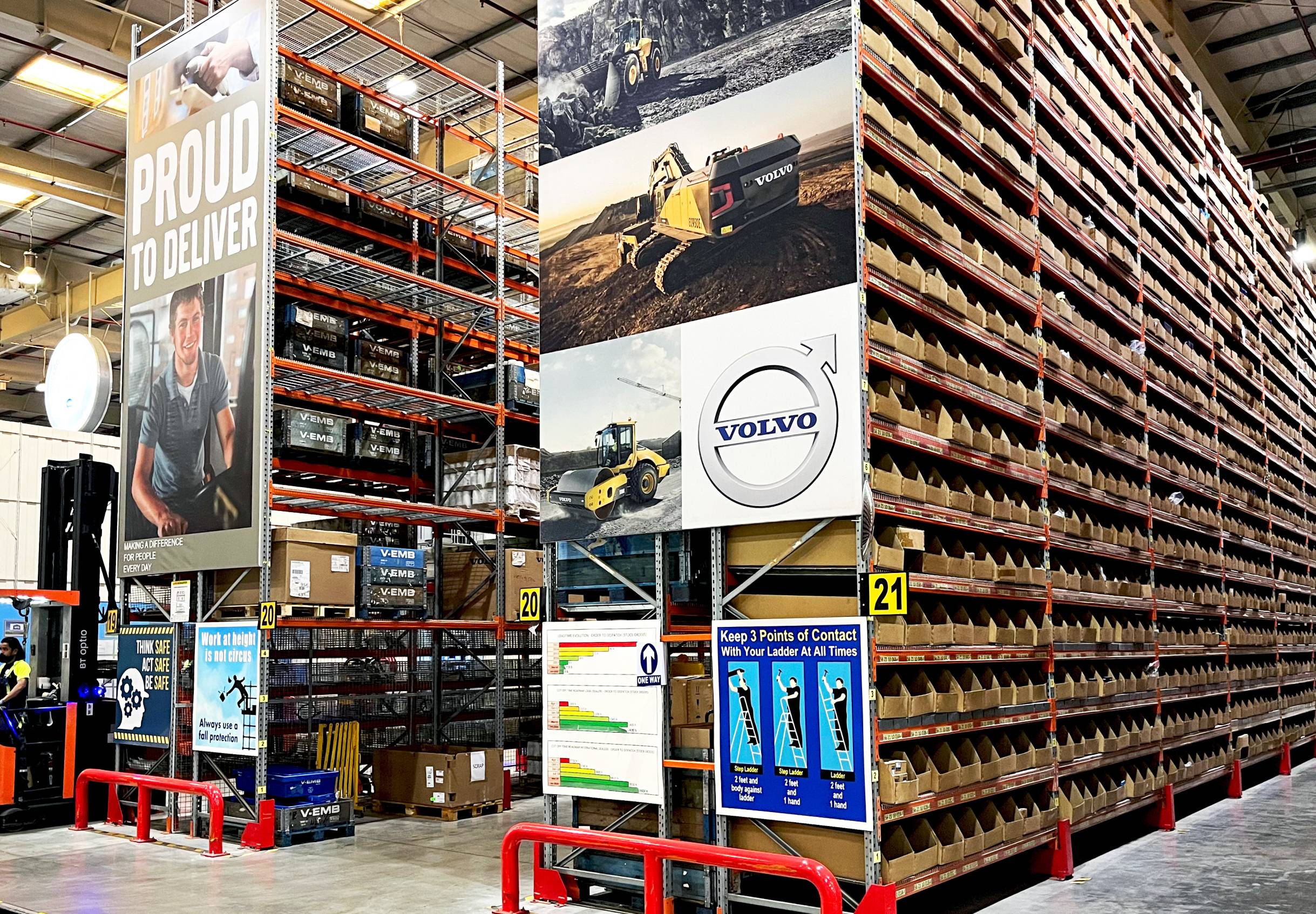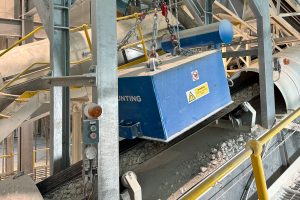Continuous improvement at the Regional Distribution Centre in Dubai and dealer direct ship programmes for undercarriage and high-volume parts are delivering ever higher standards of customer service and machine uptime for Volvo Construction Equipment in the Middle East.
Volvo CE aims to deliver the industry’s highest levels of customer uptime and profitability. Besides the reliable build of its machines, the added value of its services, and the world-class competence of its dealers, parts availability plays a vital role.
“If a machine cannot work because it is waiting for parts, it becomes a drain on resources rather than helping the customer to earn money. This is something we absolutely want to avoid,” says Jesper Uhlin, service market manager for the Middle East at Volvo CE.
In 2006, Volvo Group sought to reduce delivery times to dealers in the Middle East from the Central Distribution Centre (CDC) in Ghent, Belgium, by establishing a Regional Distribution Centre (RDC) in the strategic location of the Jebel Ali Free Zone in Dubai, UAE.
The 8 000 m² warehouse stocks around 50 000 spare parts for five Volvo entities in the region: Volvo CE, Volvo Trucks, Volvo Buses, Renault Trucks and Mack Trucks. Volvo CE parts constitute just under a third of the inventory with approximately 12 000 part numbers.
The top 500 fast moving parts for Volvo CE are maintained at 93% availability, while overall availability hovers at 88%. Parts on backorders are recovered within 11 days of placing orders with the CDC in Ghent.
The site in Jebel Ali has excellent road network connections within UAE and to other Gulf countries so that almost 75% of shipments can be transported to dealers by truck, simplifying and shortening the logistics.
The RDC coordinates with Volvo CE dealers using the Syncron based MMI (Manufacturer Managed Inventory) tool, which helps both dealers and the warehouse to replenish the right quantities at the right time. This avoids dealers having to maintain excess inventory, improving the health of the stock.
Since its opening, Volvo Group has invested considerably in the RDC in Dubai, while its staff are constantly striving for continuous improvement. Whereas in 2013 the lead time for parts available in stock was 168 hours or five days from order to dispatch, today it is under eight hours.
Since 2017, the RDC has extended the cut-off time for stock orders from 1pm to 2pm for local dealers and from 7 am to 9 am for international dealers. Stock orders before these cut-off times are picked, packed, and dispatched on the same day by 4pm.
Vehicle off-road (VOR) orders, meanwhile, have a cut-off time of 3 pm and are still dispatched on the same day. The RDC has dedicated staff to handle these kinds of orders. They are identified by the red colour of their uniforms and are given the highest priority in picking and utilisation of resources. These staff are also trained on end-to-end processes and are empowered to take decisions by themselves to ensure efficiency.
If the part is not available in the RDC, a direct ship process follows where the orders are transmitted to the CDC in Ghent and delivered directly to the dealer. This helps reduce the lead time to process VOR orders and ensures uptime for customers.
The Japanese improvement methodology Kaizen has been a vital tool in the RDC’s success. “We put a lot of efforts into ‘going to Gemba’, which is spending time on the shop floor to see the real problems we face, talk to everybody involved, and truly understand what is going on,” says Humera Shaikh, Director of the RDC.
The next stage is value stream mapping. The team maps all the processes step-by-step to see what can be done to reduce time from order to dispatch, eliminating any hindrances or waste.
“For example, we have a very clean, traffic flow. We have one way traffic and stations set up so we don’t have lots of machines driving around and colliding. We also have a pull, rather than a push, system for ordering so that orders do not accumulate in one station,” Shaikh explains.
The team has also established a flawless process for import documentation, so that no trucks are waiting at border crossings due to incomplete paperwork.





![Data from the World Risk Poll shows that one in five (21%) people in mining and quarrying occupations have experienced harm at work in the past two years. [Photo by Shane McLendon on Unsplash]](https://quarryingafrica.com/wp-content/uploads/2024/10/shane-mclendon-89hUOLtVfoI-unsplash-300x225.jpg)
